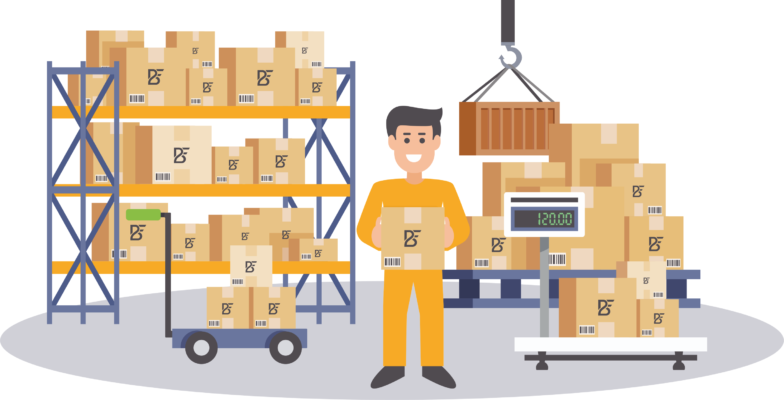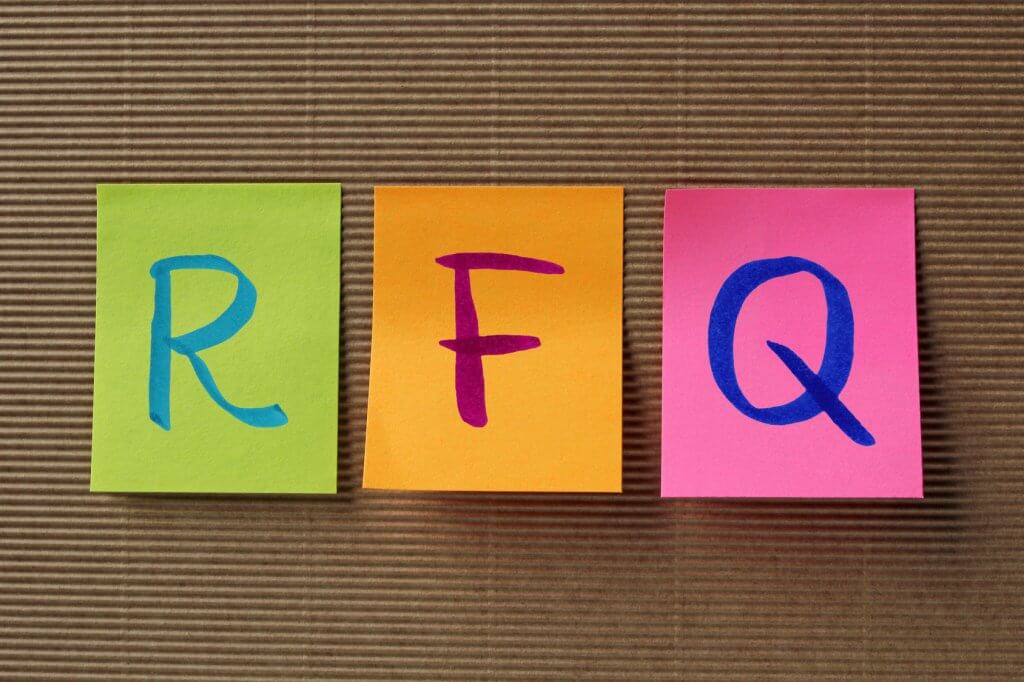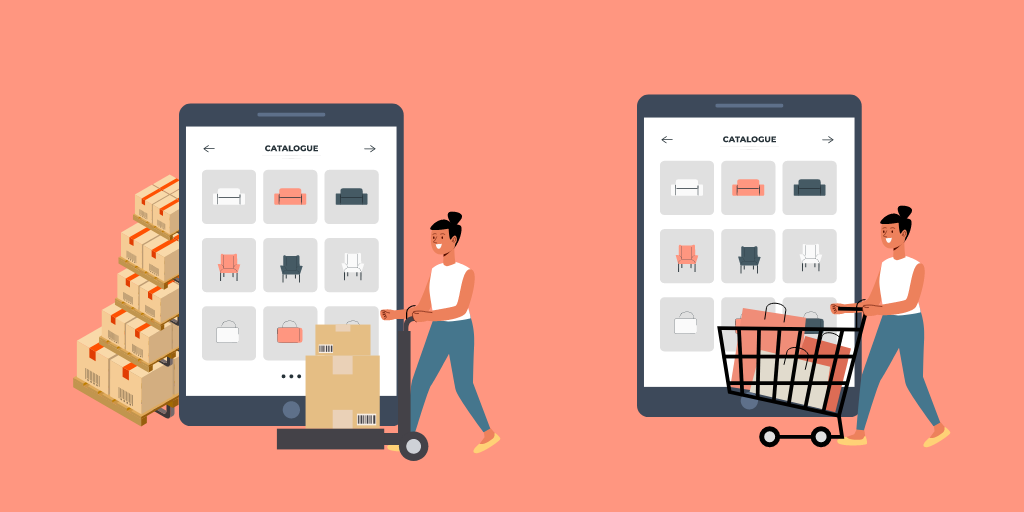Whether you’re a manufacturer, distributor, or wholesaler, you must’ve caught the buzz about B2B eCommerce.
It’s happening. And it’s real.
Amazon has already disrupted the industry by launching Amazon Business, which has changed the way business buyers buy.
And because of that, your buyer’s expectations have changed.
They have become so used to seamless buying experiences when purchasing on sites like Amazon that they have started expecting the same ease and convenience when placing high value, bulk orders for their business.
Why should it be different, anyway? Buyers are humans too.
Whether you’re selling to someone during the 9 to 5 or 5 to 9, they’re the same people – humans who prefer ease and convenience over anything else.
But before you create your digital strategy and start selling online, it’s important to understand the difference between B2B and B2C eCommerce.
Though your buyers are expecting the same consumer-like experiences when buying in bulk for their business, there are significant differences in the mechanics of a B2B and B2C online store.
Let’s dive in and take a deep look at all the differences between B2B and B2C eCommerce.
The Technical Difference Between B2B and B2C eCommerce
Technically speaking, B2B stands for Business to Business while B2C stands for business to consumer.
How does this difference apply to eCommerce? Ecommerce means to sell products or services online through any kind of web portal.
And so, in B2B eCommerce, you’re selling to a business as opposed to selling to a consumer like in B2C eCommerce.
For example, if you’re ordering a pizza for yourself or your family, you’re a consumer and the site you’re using to place your order is a B2C store.
On the other hand, if you’re a reseller and purchasing your store’s merchandise from a manufacturer or a distributor, you’re a business buyer and the site you use to place your order online will be a B2B store.
With that critical difference explained, let’s now dig in deeper and look at how the buyer’s journey and buyers’ needs differentiate in B2B as compared to B2C.
Buyers Needs in B2B vs B2C eCommerce
Though there are tons of differences between B2B and B2C eCommerce, there is one important similarity between them.
Whether you’re selling to a business buyer or a consumer, you’re technically selling to the same person. It’s the same person who orders a pizza for himself during lunch and then purchases merchandise for his business.
That’s why the underlying need of both types of buyers is the same: convenience and ease.
Whether we talk about B2B eCommerce or B2C, your buyers want a seamless experience of placing the order.
In fact, this need is even more amplified in B2B. It’s because a business buyer would prefer a supplier that makes his ‘job’ of placing the order easier.
That buyer isn’t necessarily going to prefer cost advantage over convenience and ease. Even if you price your product or service higher but offer them a better buying experience, they’ll likely prefer that.
Because at the end of the day, it’s not their own money they are spending. It’s the business’s money.
This similarity actually complicates everything.
Because it means that while both business buyers and consumers have a world of differences in their buying processes and their buying journeys, they have the same underlying need to have a seamless experience.
This puts all the burden on you and leaves you to identify all the complicated needs of your buyers and create a solution that streamlines their process and removes friction from their journey.
Business Buyers Place Bulk Orders

As opposed to consumers who are usually placing small orders, business buyers place bulk orders. They even need to order multiple variations of the same product.
Keeping this need in mind, your B2B eCommerce platform should streamline the bulk ordering experience and make it efficient for them.
If you buyer needs to visit product pages of each of the thousand SKUs he needs to order, he’ll probably find the old-school methods of placing the order over phone and email more efficient for him.
Give your buyer a one-page solution where he can search for products from a single page and add to cart right there without the need to visit individual product pages.
Displaying your products in intuitive Product Tables can help streamline the bulk ordering process for your buyer.
Another friction point that your buyer faces is when he needs to purchase multiple variations in bulk. Most eCommerce platforms allow customers to choose a variation of the product, select quantity, and add to cart.
To purchase multiple variations of the product, the buyer needs to refresh the page after adding one variation to cart and then choose the other variation.
To cater to this unique need of business buyers, you need a solution that allows them to choose multiple variations at once. A variation table on the product page can help remove this friction for your buyer.
Get the Product Table plugin and the Wholesale Product Page Customizer plugin to add these features to your WooCommerce B2B store.
Business Buyers are Part of a Company with their own Buying Teams
When a consumer visits your store, they are just buying for themselves. They are not part of any procurement team responsible for making purchases.
A consumer will find the product he wants, compare it to others, and purchase it. He doesn’t have to get an approval from a manager before placing the order.
In the B2B world, it’s exactly the reverse. B2B buyers aren’t just individual buyers. They have their own buying teams and purchasing processes.
To streamline their experience on your store, you need to accommodate their buying processes as well so that they can easily journey through the whole order approval process.
With corporate account features that allow your buyers to add their own team members to their account, share carts with them, get their approval, and assign roles and permissions, you can streamline their complex buying processes.
B2BWoo eCommerce platform offers corporate account features for your B2B buyers.
Business Buyers Often Know What They Want and Want it Quick
A consumer will often enjoy looking at different products available in your store, often spending more time just ‘strolling’ around and comparing products and prices.
In the B2B world, every minute spent is translated in dollars. And so, buyers want a quick and efficient way to place orders.
They usually know what they want and they don’t readily switch to different products unless there is a strong reason for it.
Sometimes, they even have an excel sheet with all the SKUs listed on it.
Make sure your eCommerce platform offers a feature like a Quick Order form that allows them to place bulk order quickly.
Get the Quick Order plugin for WooCommerce stores to add a bulk order form with a CSV upload option.
Business Buyers Need More Detailed Information About the Product
Business buyers generally spend more money than consumers. With so much money on the line, these buyers want more detailed information about the product they’re buying.
This is especially true for hefty, high-ticket items like industrial equipment and machines.
To accommodate this need, you need to include features like PDF sheets on your product pages that allow buyers to download those and even share them with the board members to get approval.
Business Buyers Need More Personalized Experience
What if you’re an electrical supplies distributor dealing in hundreds of thousands of SKUs? Will you display all of those SKUs for a certain buyer who is only interested in buying 10 of those SKUs?
To save time and bring efficiency, business buyers need more personalized experience. They want you to know what they want and serve them exactly that instead of overwhelming them with products they are not interested in.
With Catalog Visibility options that allow you to fetch data about the buyer visiting your site and using algorithms to serve them personalized catalogs, you streamline their buying process.
Check out the Catalog Visibility plugin that allows you to serve tailored catalogs to your business buyers.
Business Buyers Need to Negotiate on Prices Before Buying

Another unique need of business buyers is to get competitive prices for products. Since they’re buying in bulk, they need competitive prices that allows them to remain profitable and manage their own margins.
Instead of placing an order for the listed price, these buyers usually prefer to talk to a sales representative and negotiate on the price.
That’s where a Request for Quote (RFQ) feature in a B2B store comes in.
With RFQ, your buyers can seamlessly request for quotes and negotiate with your sales team – all through a dedicated quotations portal.
Check out the B2B eCommerce for WooCommerce plugin to add a quotation feature to WooCommerce stores.
Business Buyers Need More Flexible Payment Methods
Though a consumer would appreciate having more payment options, this need is even more amplified in the B2B world.
Business buyers would negotiate with your sales team about their payment method and upon successful contract, they would like to get an option for their custom payment method on the checkout screen.
For example, if the buyer has a contract with you for Net 60 payment terms, he would like to see the payment method on the checkout screen.
B2BWoo has taken care of this tiny need of business buyers as well.
Conclusion
There is a world of difference between B2B and B2C.
However, the underlying need of both business buyers and consumers is the same – the need to save time and have seamless and frictionless buying experiences.
By highlighting all the friction points in a typical buyer’s journey in B2B and suggesting their solutions, we’ve done half the work for you.
With off-the-shelf solutions for B2B eCommerce, we’re taking the friction out of the digitization process of B2B companies.
It’s high time you take a step forward and choose to be disruptive or be disrupted.
Read Also
